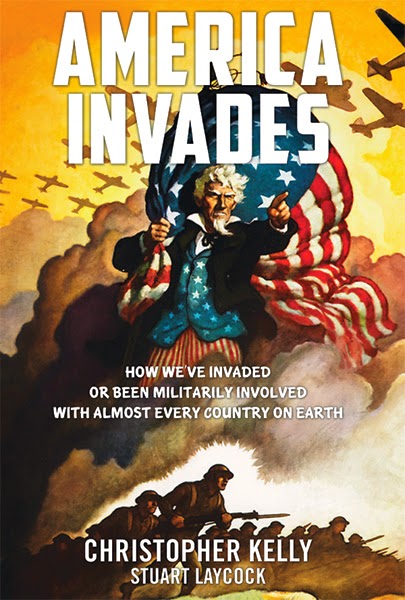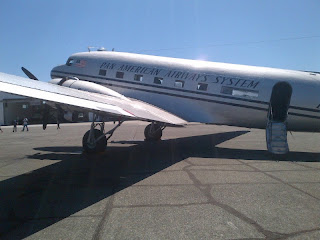 |
| Sixth Floor Museum Dealey Plaza, Dallas |
JFK was a young, dynamic, good-looking man who died a tragic and premature death. He was a war hero from his service in the U.S. Navy on PT-109 in the Pacific in World War II. He is an icon to partisan Democrats, yet his brand of leadership was dramatically different from the liberal orthodoxy of today. Like Ronald Reagan and George W. Bush, he lowered taxes thereby stimulating economic growth. He was strong on defence and criticized Nixon from the right on defence issues during the televised 1960 debates. JFK founded the Navy Seals who have, to say the least, demonstrated their utility in recent years. He was also an Irishman and the nation's first Roman Catholic President. Kennedy's speeches were filled with soaring rhetoric that inspired millions. Even a young Dick Cheney was inspired to follow a career in public service partly due to a whirlwind JFK visit to Wyoming during the 1960 campaign. JFK had some pretty terrific speechwriters.
 |
| Dallas Museum of Art Dallas, Texas |
At the museum you will see the perch from which the assassin fired on that fateful day. The boxes of books are stacked up and scuff marks are still in the floor as it was on November 22, 1963. Three shell casings were found here alongside the rifle. It is a very clear shot from the window to Elm street below.
 |
| History from a different perspective |
A more objective perspective on the JFK Presidency that you will not find at the 6th floor museum comes from British historian Michael Burleigh http://en.wikipedia.org/wiki/Michael_Burleigh. He took a degree in history at University College London and was a professor at Oxford and other institutions. In his recent book, Small Wars, Faraway Places (www.amzn.com/0670025453/) he writes,
"Kennedy had the morals of an alley cat."
"The benchmark aspired to by all who seek to use their style to obscure their lack of substance."
"Jack was packaged for high office as no one had ever been packaged before."
 |
| JFK plaque National Museum of the Pacific War Fredericksburg, Texas |
After the disastrous Bay of Pigs invasion during a meeting of the Organization of American states Che "Guevara gave a White House secretary a note for JFK. 'Thanks for Playa Giron,' it said. 'Before the invasion, the revolution was weak. Now it's stronger than ever.'"
The 6th Floor Museum presents JFK as a man of peace (creator of the Peace Corps, etc.), hardly bothering to mention his escalation of American military involvement in Vietnam. In the very same month that he was assassinated November 1963, JFK authorized the CIA to assist the conspirators that assassinated the Roman Catholic President of South Vietnam Ngo Dinh Diem and his younger brother Nhu. Burleigh writes, "Diem and Nhu were bound and loaded into an armored personnel carrier, and were butchered during the journey into central Saigon. The APC had to be hosed out afterwards."
Nowhere in the 6th Floor Museum will you read about Operation Mongoose that was supervised by Bobby Kennedy and run by the CIA in a series of botched attempts to assassinate Fidel Castro and destabilize the Communist regime in Cuba.
JFK's brother Bobby Kennedy is today revered as a secular saint and an icon of the Democratic party. Burleigh, on the other hand, sums up Bobby as "his elder brother's rat-catching terrier." On August 21, 1962, he asked "if the CIA could stage a phony attack on the American military base at Guantanamo Bay as a pretext for an American invasion of Cuba." (Source: Legacy of Ashes: The History of the CIA, Tim Weiner, 2007 www.amzn.com/0307389006). The next day he had changed his mind. RFK, therefore, contemplated and briefly advocated using precisely the same tactics employed by Hitler in his invasion of Poland in 1939.
The 6th Floor Museum presents a thoroughly sanitized JFK. There is no suggestion, for example about the persistent rumors linking both JFK and RFK romantically with Marilyn Monroe. A recent news story alleged that Bobby may have smothered Monroe with a pillow! http://blog.zap2it.com/pop2it/2013/06/marilyn-monroe-and-bobby-kennedy-fought-the-day-she-died-a-sex-recording-of-her-with-jfk-may-be-out.html.
The Cuban Missile Crisis is singled out by the 6th Floor Museum and many Camelot troubadours as JFK's greatest foreign affairs achievement. The Soviets blinked and their missiles were withdrawn from Cuba; the world had narrowly missed a possible thermonuclear war.
Yet the Cuban Missile Crisis was, in fact, a strategic victory for the Soviet Union and Cuba. The Soviet primary goal in the whole affair was to remove the medium range missiles from Turkey. This they accomplished. As a bonus they managed to extract a commitment from JFK and ALL subsequent US Presidents never to invade Cuba. This freed up Castro to dispatch Cuban troops to Angola, Grenada and many other countries attempting to export La Revolución throughout the third world.
In February 1962 JFK signed an executive order banning most Cuban imports, particularly cigars -- "having first stocked up on his personal supply." (Source: Small Wars, Faraway Places, Burleigh). It is this ban that prevents Americans from enjoying Cuban stogies to this day.
What was JFK's greatest strength? His greatest political asset was surely his long-suffering wife Jackie. Gorbachev was once asked by a reporter how the world would have been different if Krushchev had been assassinated instead of Kennedy in 1963. Without missing a beat, Gorbachev replied that he doubted whether Aristotle Onassis would have married the widow Madame Krushchev!
What was Kennedy's gravest flaw or failure? His womanizing? His reckless foreign policy? His shameless hypocrisy? No, it was his perceived weakness that suggested a more aggressive course of action to Krushchev and others. Krushchev asked, "Can he really be that indecisive?'
Nestor Sanchez, a CIA aide in 1963 who would later become the CIA's chief of the Western hemisphere in the 1970's, said, "You don't get involved in covert-type operations unless you are willing to go the distance." That kind of commitment "was lacking in the Kennedy administration and it happened twice: the Bay of Pigs and the second one (Operation Mongoose). They backed out of both...The waffle was already in there." Source: Our Man in Mexico: Winston Scott and the Hidden History of the CIA, Jefferson Morley, 2008 www.amzn.com/0700617906).
Suppose for a moment that Winston Churchill had an affair with Marilyn Monroe (chronologically possible though ludicrous). Do you think that the Churchill War Rooms' chronology of his life would edit this out because some might be offended? Of course not! The lickspittle curators at the 6th Floor Museum are prudes and/or ideologues.
 |
| Lee Harvey Oswald 1939 - 1963 |
2013 marks the fiftieth anniversary of the JFK assassination. Due to Ruby's assassination of Oswald (an unforgettable event that I witnessed on live television at the age of four) and the deeply flawed Warren Commission report (LBJ said, "We can't just have House and Senate and FBI and other people going around testifyin' that Kruschev killed Kennedy, or Castro killed him." Source: Legacy of Ashes, Weiner, 2007, www.amzn.com/0307389006), we may still be arguing the question in a hundred years time. The Warren Commission was primarily tasked with avoiding World War III rather than with getting to the truth about the Kennedy assassination.
The circumstantial evidence is overwhelming that Lee Harvey Oswald was directly involved in JFK's assassination. Texans are quick to point out that Oswald was born in New Orleans, but he did grow up in Dallas. In 1956, while in the US Marine Corps, he qualified as a sharpshooter. He purchased the Italian Carcano bolt action gun (made in Terni Italy in 1940 -- the same fateful year that Mussolini brought Italy into World War II) via mail order for the sum of $29.95 in March of 1963. This gun and three shell casings were found in his sixth floor sniper nest at Dealey plaza. There are multiple witnesses who place him near the shooting of (four times with a revolver also purchased by Oswald via mail order) Officer J.D.Tippet before Oswald's arrest in the Texas movie theater. Officer Tippet was a World War II veteran who received the bronze star and had served in the Battle of the Bulge.
 |
| "Texas School Book Depository" in 2013 |
Lee Harvey Oswald, born in 1939 (the same year that World War II commenced), was only 24 years old at the time of the assassination. He was a self-proclaimed Marxist who spent three years (1959 - 1962) in the Soviet Union. He was married to a Soviet citizen who was the niece of a KGB agent. He was a founding member of the Fair Play for Cuba Committee that distributed 1,000 leaflets in New Orleans headlined, "Hands off Cuba". Weeks before the assassination he visited the Soviet embassy and Cuban consulate in Mexico City, five times demanding a travel visa to Cuba. Oswald was a Communist fellow traveler.
Did Oswald act alone?
Oswald bought the guns on his own via mail order. Oswald had access to the 6th Floor window through his job with the Texas Book Depository. Oswald knew about the route for JFK's motorcade from the Dallas Morning News. Oswald was a young fantasist; both he AND JFK were reading an Ian Fleming James Bond novel in the week before the assassination. It is impossible to disprove a negative, but Ockham's razor would suggest that Oswald acted alone.
 |
| Fidel Castro at restaurant in Shanghai |
In November of 1963 Fidel Castro attempted to smuggle a 3 ton cache of arms into Venezuela. He was one of the few people in the world who knew that the Kennedy administration had been involved with a three year effort to assassinate him. In an interview given on September 8, 1963 Castro warned, "US leaders should think that if they are aiding terrorist plans to eliminate Cuban leaders, they themselves will not be safe." Is there any chance of a deathbed confession from Castro? As the British are wont to say, "not bloody likely". At a minimum though, Castro seems to have provided the political inspiration for Oswald's actions.
 |
| The fateful 6th Floor Window |
Nixon was a fellow naval officer in World War II who had a surprisingly cordial relationship with JFK when both were serving in congress. Both men were keen admirers of the red-baiting Senator "Tailgunner" Joe McCarthy. Richard Nixon said, "They pinned the assassination of Kennedy on the right wing, the Birchers. It was done by a Communist and it was the greatest hoax that has ever been perpetuated."
In a 1976 interview LBJ said, "I'll tell you something that will rock you...Kennedy was trying to get to Castro, but Castro got to him first."
For more from Commander Kelly check out his new book America Invades...
You can find signed copies of our books at
these web sites...
these web sites...
Or regular copies on Amazon...
www.amazon.com/Christopher-Kelly/e/B00RW8QZG6/ref=sr_ntt_srch_lnk_1?qid=1539454238&sr=8-1
www.amazon.com/Christopher-Kelly/e/B00RW8QZG6/ref=sr_ntt_srch_lnk_1?qid=1539454238&sr=8-1
Or on Kindle...
Listen to my interview with Bob Cudmore...http://bobcudmore.com/thehistorians/tracks/ChristopherKelly(August2017)(29)(mp3).mp3
And my most recent interview...http://www.wbur.org/hereandnow/2018/08/17/america-invaded-christopher-kelly
An Adventure in 1914 is now shipping...www.anadventurein1914.com
Or on Amazon...www.amzn.com/0692767894



































